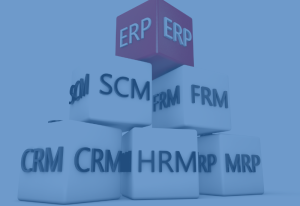
An Enterprise Resource Planning (ERP) system is a software solution that integrates and manages a wide range of business functions, such as finance, human resources, procurement, inventory management, and sales. Implementing an ERP system can be a significant investment for a business, both in terms of time and money. Therefore, it’s important to carefully evaluate when the time is right to implement an ERP system. Here are some key indicators that it’s time to consider implementing an ERP system:
- Data is Disorganized: If your business is struggling to manage data across multiple systems, spreadsheets, or even paper-based processes, an ERP system can provide a centralized database that brings all the data together in one place. This can help streamline processes and provide better insights into business operations.
- Manual Processes are Slowing Down Operations: If your business relies on manual processes, such as data entry or report generation, this can lead to inefficiencies and errors. An ERP system can automate many of these processes, freeing up time and resources to focus on higher-level tasks.
- Difficulty in Managing Inventory: If your business is struggling to manage inventory levels or experiencing frequent stockouts or overstocking, an ERP system can help optimize inventory management. By providing real-time data on inventory levels, demand, and ordering, businesses can make more informed decisions and avoid costly inventory issues.
- Lack of Visibility into Business Operations: If your business lacks visibility into key business operations, such as finances or customer service, an ERP system can provide real-time data and analytics that enable better decision-making. This can help businesses stay ahead of the competition and drive growth.
- Inability to Scale: If your business is experiencing rapid growth, it may be time to consider an ERP system that can support increased demand and help manage complexity as the business expands.
In conclusion, implementing an ERP system can provide significant benefits for businesses, including improved data organization, streamlined processes, better inventory management, increased visibility, and scalability. By carefully evaluating when the time is right to implement an ERP system, businesses can ensure a successful implementation that provides lasting value.




